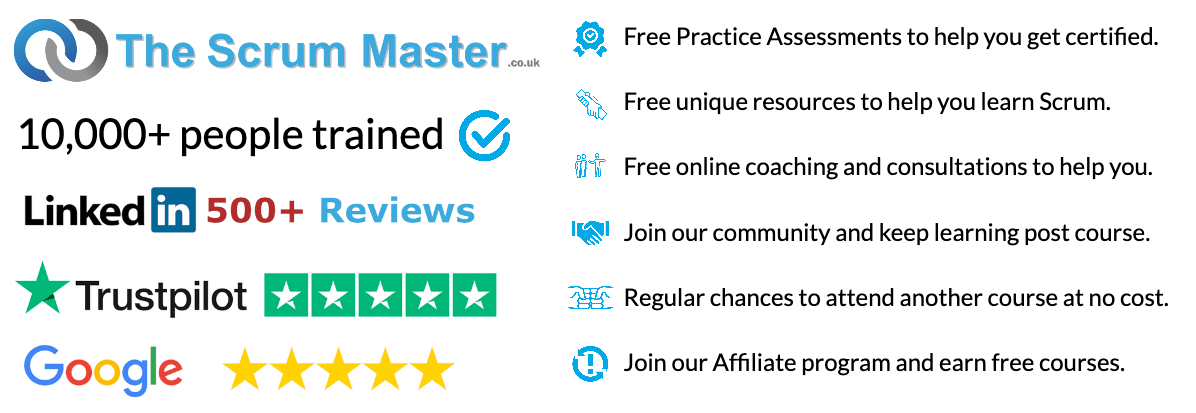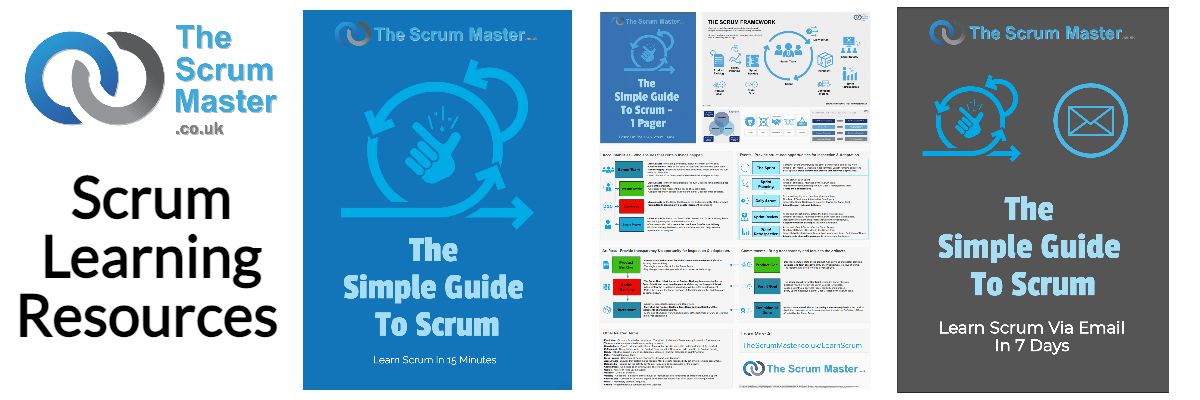 A recent question received via the Contact Us page on TheScrumMaster.co.uk was – “How can I get my first Scrum Master role and gain experience if the available jobs require 2+ years of experience? What do you advise?”
A recent question received via the Contact Us page on TheScrumMaster.co.uk was – “How can I get my first Scrum Master role and gain experience if the available jobs require 2+ years of experience? What do you advise?”
This is the classic Catch-22 situation when changing careers. No experience, no job. No job, no experience! Every job seems to require many years of experience in a similar role. So how can you get started without this experience? Everyone must have been in this position at some point, so what did they do?
The good news is that this is less of an issue than it used to be. Careers today are not as linear as they once were. People change jobs, careers and industries all the time. I have helped many people move into the Scrum Master role, so I know it is possible and that it can be done.
The Scrum Master role is a relatively new one. When I first became a Scrum Master in 2005 it was rare to see any roles advertised. A check of Scrum Master jobs advertised on CWjobs.co.uk revealed 52 vacancies in the UK today. As more companies adopt Scrum, the demand for Scrum Masters is growing rapidly and there is a shortage of good people to fill these vacancies.
The opportunities are there if you know where to look and how to prepare and promote yourself effectively. Here are my tips on how to move into your first Scrum Master job.
Learn, Learn, And Learn Some More
If you want to move into a new role you need to know how to do it. There are many ways to learn about Scrum and the Scrum Master accountability. They vary in cost, time and effectiveness. Everyone has a preferred way to learn, so here are some suggestions:
- Use Google To Find Free Content – The internet is full of free content about Scrum. A google search will open up a vast treasure trove of content for you to consume. My personal favourites are
- The Scrum.org blog which has new content from experts every day and will allow you to take your Scrum learning much deeper.
- Books – There are many excellent books about Scrum. With a small investment of money and time, you can learn massive amounts. Here is a selection of my favourite Scrum books.
- Training Courses – Experiences that are specifically designed to help you learn and discover Scrum & the Scrum Master accountability will significantly speed things up and ensure you have covered all the fundamentals. You can learn in person or online. I specialise in helping people new to Scrum and would be happy to help you, so consider joining one of my classes.
- Certification – Gaining a recognised Scrum certification is highly advisable if you are new to the role. Certification will not guarantee you are capable of doing the job. However, it will demonstrate to employers that you have a basic understanding of Scrum and so is usually a prerequisite for organisations hiring Scrum Masters. Professional Scrum Master (PSM) and Certified Scrum Master (CSM) are the 2 most widely recognised entry-level certifications. Scrum.org offer the PSM assessment and certification. It is relatively low cost and you do not have to attend a class to take the assessment. Here are some tips on how to prepare and pass the PSM assessment.
Gain Experience
- Gain experience In Your Current Organisation – Any relevant experience you can gain and demonstrate will make things easier. If your current organisation is using Scrum, volunteer to get involved and help. If they are not, but they may benefit from it, offer to teach people about it and help them learn and experiment with its use. It is always easier to get experience in something new in an organisation where you have already built trust and proven yourself capable in other areas.
- Gain experience In A New Organisation – If there are no opportunities in your current organisation, you could offer your services to someone else in an intern/apprentice capacity. This is not for everyone as it often means low or no remuneration, but it can be a very effective way to learn, demonstrate your abilities and gain valuable experience and confidence.
Make Connections In The Scrum & Agile Community
- Meet People in the Scrum & Agile Community – Meeting people in the Scrum + Agile community will help you discover more and find out what the job market is like in your area. The people you make connections with will also be a valuable source of insight into where the best Scrum Master roles are, who is hiring and how to get hired. Many jobs are not advertised so the more people you make strong connections with the greater your chance of getting hired in future. Joining groups and attending events can be a great way to do this. There are a wide range of Scrum & Agile groups that meet regularly in most large cities. Check out Meetup.com and see what you can find nearby.
- Connect to people on LinkedIn – Connecting to people on LinkedIn and then following conversations and connections to other interesting people that you discover will help you to build a network. You can connect to me on LinkedIn. There are also many excellent Scrum groups on LinkedIn. The Scrum.org forums are also good for this.
- Meet People Through Training – Training courses are an excellent way to meet people. There will be a broad range of people so you will meet others in a similar position to you, people who were in a similar position to you but are now in a Scrum Master role so have solved this problem (these people will provide absolutely the best insight in how to do it) and more experienced people who can accelerate your learning and may be able to point you to opening and opportunities in their organisations or network. Conferences can also be really effective for this. Remember that the best way to get help from people is to give help.
Show Your Experience, Skills & Motivation
- Emphasise Scrum On Your C.V. – To get the chance to show an employer what you know, you will have to make sure your C.V. is as effective as can be. Spend time improving your CV to emphasise your Scrum or Scrum-like experience. If you have experience in Coaching, Facilitation, Teaching or another related Scrum Master stance this will help you stand out from the crowd.
- Share Your Compelling Motivation On Your C.V. – If you are light on experience remember that a compelling story and motivation can be highly effective to convince employers to give you an opportunity. Many employers hire based on personality and cultural fit.
“The first thing to look for when searching for a great employee is somebody with a personality that fits with your company culture. Most skills can be learned, but it is difficult to train people on their personality.” – Richard Branson.
As a career changer, you may have a great story about your motivation for change. Make the most of this and show your enthusiasm, passion and attitude that will make them overlook your shortage of experience. One of the best Scrum Masters I ever hired was light on experience but strong on attitude so I can guarantee that this is can be a major factor.
Get Feedback & Adapt
- Get Interview Feedback & Adapt – If you are interviewing but are unsuccessful, remember to use what you know about Empiricism to help you. Seek transparency on the situation and then Inspect and Adapt your product (You) and your process (what you are doing and how you do it). Ask for feedback on your interview. Be sure to be polite and request feedback in a no strings attached way and do not seek to challenge their decision. Respect their opinion and if you spot some patterns in the feedback, these will be things for you to focus on.
Every day more organisations are adopting Scrum. The demand for effective Scrum Master continues to grow so it is absolutely possible to find a role with limited experience. Determination, patience, and perseverance are vital. I did it. Millions of others have done it. You can do it!
--
 Hi, my name is Simon Kneafsey and I am a Professional Scrum Trainer with Scrum.org & TheScrumMaster.co.uk. I am on a mission to simplify Scrum for a million people. I have helped over 10,000 people so far and I can help you too.
Hi, my name is Simon Kneafsey and I am a Professional Scrum Trainer with Scrum.org & TheScrumMaster.co.uk. I am on a mission to simplify Scrum for a million people. I have helped over 10,000 people so far and I can help you too.
Learn more at TheScrumMaster.co.uk and signup for our newsletter with 80,000+ practitioners.


